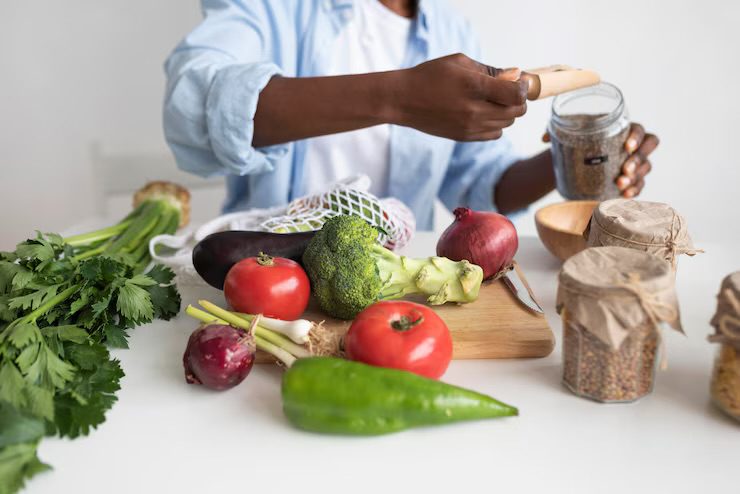This content is for informational and educational purposes only. Always consult a qualified healthcare provider.
The difference between nutrition and dieting lies in their practice and value. Nutrition is more about the behind-the-scenes of the food we eat; it entails the science of how food, and its nutrients, namely carbohydrates, proteins, and healthy fats, work or impact the body. Dieting, on the other hand, refers to a person’s eating habits, which can be intentional or controlled for specific reasons, such as weight loss, health conditions, or achieving certain health goals.
📋 Table of Contents
Your Diet Vs Dieting
The term diet refers to all the food you eat as a person; it may be healthy or unhealthy. Although we hope it’s not the latter. However, dieting or when you go on a diet is quite different, in the sense that you are restricting something. It may be the amount of calories you consume per day, or you may be aiming for a low-fat diet, and restricting fatty foods. Every dieting plan requires good nutritional value, and a person’s nutrition needs a well-organized diet plan to structure meals and maintain a healthy body. Dieting has many features to it, such as:
- Portion control
- Counting calories
- Extreme calorie deficit
- Cutting certain food groups
- Meal planning
- Journaling your food
- Mindful eating
- Drinking more water
There are several types of dieting practices, including:
- Keto diet
- Paleo diet
- Intermittent fasting
- Low-fat diet
- Low-carb diet
- The vegan diet
- Mediterranean diet
- Dash diet
According to sciencedirect, dieting may have some complications due to insufficient calorie intake, and the development of obsessive thoughts about food and the body. Despite the testimonies many have expressed regarding these diets, it’s important to speak with your doctor before trying them out. Not everything you see on social media or online needs to be followed or practiced. It’s important to question things and do thorough research.
The Importance of Good Nutrition
There are nutrients in the food you eat. Nutrition is about eating a healthy, balanced diet, so your body gets the nutrients it needs. The nutrients you consume in foods are there to help your body function and grow. And these essential nutrients are carbohydrates, proteins, fats, minerals, vitamins, and water. Your body needs nutrients to survive, live longer, and better, because with poor nutrition comes malnourishment. A balanced diet should contain these essential nutrients:
- Carbs 40 -55%
- Protein 15 %
- Fat 20-30%
And don’t forget that a balanced diet is not complete without fruits and vegetables. Your diet should also contain a healthy amount of minerals, vitamins, and antioxidants. That said, a nutritious diet should limit the consumption of processed foods, but not eliminate them. Things need to be balanced, so having a sugary snack or beverage sometimes is not a bad thing. Unless you’ve been told by your doctor due to health reasons, then you should listen to your doctor.
Additionally, hydration is equally important because a lack of sufficient water in the body can lead to dehydration or other serious health problems, and even death.
The Key Takeaway
Nutrition and diet are quite different. Nutrition is simply the nutrients you consume in foods, which are carbohydrates, proteins, fats, minerals, and vitamins. Dieting is about regulating or limiting the food and/or drinks that you consume to improve your physical health, especially for weight loss.

